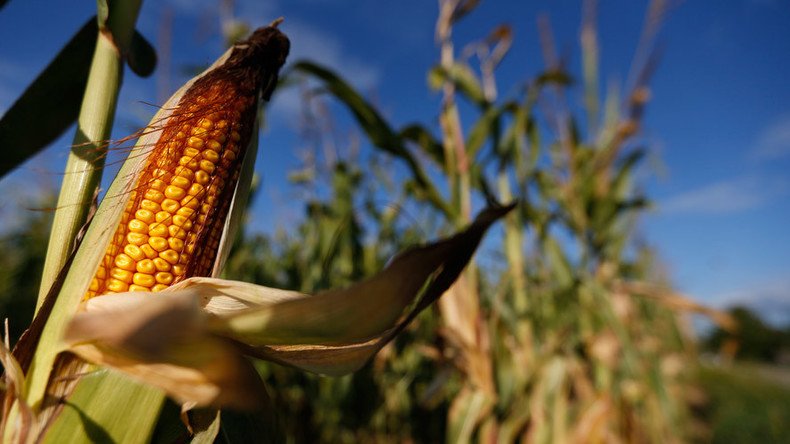FDA to test food for Monsanto weedkiller

The US government’s food watchdog will soon begin testing certain products for the presence of glyphosate, the active ingredient in Monsanto’s herbicide Roundup, which the World Health Organization linked to cancer last year.
Milk, corn, eggs and soybeans are on the list of foods the Food and Drug Administration (FDA) intends to test for glyphosate residue. Soy and corn are widely used in animal feed and are among the crops routinely sprayed with variants of Roundup, a herbicide developed by Monsanto in the 1970s. Glyphosate is now off-patent and widely used around the world, with Monsanto promoting “Roundup Ready” crops genetically modified for immunity to the chemical.
“The agency is now considering assignments for Fiscal Year 2016 to measure glyphosate in soybeans, corn, milk, and eggs, among other potential foods,” FDA spokeswoman Lauren Sucher told Civil Eats, an American food news publication.
Exclusive: @US_FDA to start testing foods for residues of glyphosate, the world’s most widely used weed killer. https://t.co/Nkogjmm65M
— Civil Eats (@CivilEats) February 17, 2016
The US Environmental Protection Agency (EPA) approved Monsanto’s request to use increased levels of glyphosate in its pesticides in 2013. Last March, the World Health Organization (WHO) classified glyphosate as a “probable or possible” carcinogen, saying that laboratory tests found “limited evidence” of increased cancer in humans. Monsanto has contested the finding as “a dramatic departure from the conclusion reached by all regulatory agencies around the globe.”
Recent testing by private companies, universities and consumer groups has found residue from the chemical in honey, cereal, wheat flour, soy sauce, infant formula and breast milk.
The FDA’s failure to test for glyphosate was among the things the agency was criticized for in a 2014 audit by the Government Accountability Office (GAO). While stopping short of demanding that the FDA conduct glyphosate testing, the GAO said the agency should at the very least publicly disclose that it does not do so.
“Maybe we shamed them into it,” John Neumann, a spokesman for the GAO, told Civil Eats. The FDA is facing a follow-up evaluation from GAO in June this year.
A Monsanto chemist discovered the herbicidal properties of glyphosate in 1970, and the company began selling it as Roundup in 1974. Glyphosate use became widespread in the 1990s, as Monsanto rolled out “Roundup Ready” lines of genetically modified crops, enabling farmers to spray the fields directly. The patent expired in 2000, enabling generic version of Roundup to enter the market.
According to the EPA, as of 2007 glyphosate was the most used farming herbicide in the US, and the second most used in American homes and gardens.
READ MORE: Monsanto monarch massacre: 970 million butterflies killed since 1990
In addition to potential health hazards to humans, the widespread use of Roundup has led to the near-destruction of milkweed, a plant serving as the primary source of food for Monarch butterflies across the Midwestern US. This resulted in a 90 percent reduction in the Monarch population.













